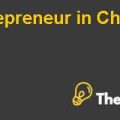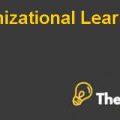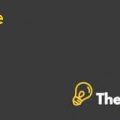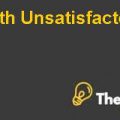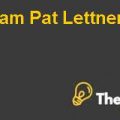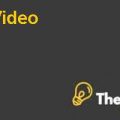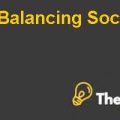Deutsche Bank and Road to the Basel Case Study Solution
By 1958, Germany was recovering financially after WWII. Deutsche Bank issued its first foreign-currency bond in 44 years in the German capital markets and since then the Deutsche Bank had started to repeat the history of being world’s leading retail banking. Over the thirty years, Deutsche Bank expanded itself in other non domestic countries, Asia-Pacific region, Canada, Brazil, Portugal and Netherlands. Furthermore, political changes in Eastern Europe helped Deutsche Bank to establish various subsidiaries worldwide, and by 2001, Deutsche Bank had entered 70 countries, and it was also listed on the NYSE.
Due to the changing global trends and business needs, Deutsche Bank shifted its focus from traditional retail banking toward global investment banking, including sales and Trading, Corporate finance, and asset management. As of June, 2011, Deutsche Bank employed 100,654 people in 72 countries and operated 3,064 branches worldwide, 2,036 were in Germany alone.
Deutsche Bank also ranked among the top five for its European Equity Research platform. By July, 2012 Deutsche Bank had the largest share in U.S fixed income investments, as well as it increased its market share in its European equity underwriting business from 9.3% to 12%. Furthermore, Deutsche Bank had high market share in debt markets transactions in U.S, and Asia-Pacific, and it had second highest market share in equity underwriting in Europe
Deutsche Bank has been transforming from leading retail banking services towards the investment banking services. Since its inception, the bank almost diversified its banking services, and provided international trade financing, cross-border investment series as a “one-stop shop”.
Moreover, the bank has the goal to make a “One-stop shop”, since the customers’ financial needs vary from deposits, loan or to sell investments. The bank has also stated that universal banking model will prevail over the pure play investment banking, and that it was in the best interest of Germany.
Therefore, by focusing on its statement of universal banking model would prevail the pure play, the bank started to avoid pure play in which the company invested in one line of business. However, referring to the global banking model, it provided diversified investment options. Since then Deutsche Bank is offering various services to its customers from commercial/retail banking services to the investment banking services in around 72 countries in the world.
Nowadays, globally increasing business needs, and international trade, and increasing number of banks in the world have created competitive environments among banks, since the 2008-09 global financial crises. Since Deutsche Bank has the challenge of meeting with requirements of the Basel III, in accordance with the Basel III, the company would have to make his financial standing very clear and strong financially. This is because it will require the banks to maintain minimum capital ratios as a percentage of Risk-weighted Assets. Furthermore, the current changing business environment and competition in the market will prevent the Deutsche Bank to carry its operations. Moreover, the bank has been accused of inapprpriately selling mortgage backed security, and the U.S department of justice has fined the bank for $14 billion. However, the question arises that given the uncertainties among the shareholders, therefore what would be there for the investors in the market.
Postbank was a German commercial and retail bank that was previously a major competitor in the market against Deutsche Bank’s domestic commercial and retail banking business line.
The acquisition of Postbank was a step taken to expand the company’s domestic/ retail or commercial position in home the market.
Furthermore, Deutsche Bank was successful in strengthening its position in the home market in European retail banking business, as well as it enhanced the company’s revenues. In addition to this, the company had strengthened its retail banking services in local Europe markets, as well as it decreased its investments banking services to gain the market share as many competitors were forced to exit the business.
Deutsche Bank had successfully got the acquisition of Postbank, as it was its strategy to make the most possible market domestic share in the retail and commercial banking, because the situation at that time was not favorable to invest in the investment banking.
Return on assets ratio (ROA) indicates that how efficiently the company is earning on per dollar of investment in assets. Through the historical financial analysis of the company, the company is not earning sufficient return on the assets. From the years 2002 to 2011, the company had very low average return on assets, and the highest return during the period was 0.47% in 2006, which led the company to earn 0.47% on each one dollar invested in assets. Furthermore, the company had average return on assets in 2012, which was is 0.14%, which is too low as compared to the industrial average of 0.41%, since the industrial average of return on assets is also very low. This could be the result of global financial crisis of 2008-09, and the European sovereign debt crises. Since then the banking sectors return has decreased, because the financial transactions have also decreased because the fix income revenues at 10 largest global banks have declined by 25% per year since the year 2009, and the amount was about $73 billion annually by 2012.
Return on equity ratio (ROE) indicates how efficiently the company is earning on the per dollar of investment madein the equity, and since the company has good return on equity as compared to the ROA ratio, therefore it has highest return on assets in 2006 26.7%, and compared to 2012 ROE 6.1%, and the industrial average of 7.7%, as the company is still below the industrial average in return on equity. Moreover, the market conditions were very serious after the crises, where banks were mostly affected in financial crisis, which affected the banks’ earning.
Through the valuation of Deutsche Bank’s equity share, the following results were extracted. In exhibit 2 it can be seen that the net income of Euro 4,973 million, in 2009, decreased to 3026 million Euros in 2016, therefore the situation for Deutsche Bank will be worse than the situation in 2009.
On the other hand, its book value of the bank has also decreased from 2983 million Euros to 1815 million Euros, therefore the company is losing its value in terms of earning and book value as well.
Moreover, during calculating the equity share of Deutsche Bank in 2016, the net income was calculated through compound average growth rate of 4 years, and multiplied it to the latest earning of the year 2012.
Deutsche Bank and Road to the Basel
The value of the equity share of the bank clearly states that the bank will lose the earnings, and there would be an uncertain situation for the shareholders. Therefore, the situation is not in favor of investors to invest in the bank, which has been fined for inappropriately selling mortgage backed security.....................
This is just a sample partial case solution. Please place the order on the website to order your own originally done case solution

